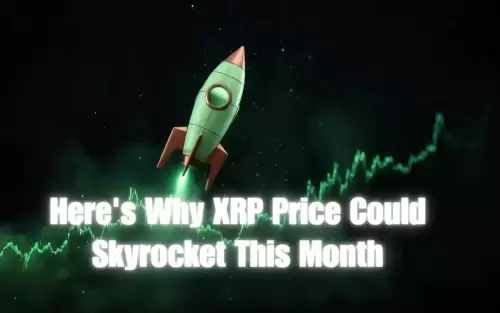 |
|
 |
|
 |
|
 |
|
 |
|
 |
|
 |
|
 |
|
 |
|
 |
|
 |
|
 |
|
 |
|
 |
|
 |
|
Cryptocurrency News Articles
Ethereum, L2 Withdrawals, and Decentralization: A New Yorker's Take
Aug 07, 2025 at 07:06 am
Ethereum's focus shifts to faster L2 withdrawals for better user experience and decentralization, balancing speed and security in the evolving ecosystem.

Ethereum, L2 Withdrawals, and Decentralization: A New Yorker's Take
Yo, the Ethereum scene is always hustling, and right now, all the buzz is about speeding up those Layer-2 (L2) withdrawals. Vitalik himself is pushing for sub-one-hour withdrawals, which is kinda a big deal. It's all about making the whole experience smoother and keeping things decentralized, ya know?
The Need for Speed: Why Faster Withdrawals Matter
Right now, pulling your assets from an L2 back to the main Ethereum network can take up to a week. A week! In this city, that's like, an eternity. Vitalik points out that this delay is a major pain and pushes people towards using less secure bridging solutions. Think about it: who wants to wait that long? Nobody. So, folks are tempted to use these sketchy multi-sig wallets and MPC systems, which ain't exactly in line with Ethereum's core values of decentralization.
ZK-Proofs to the Rescue?
So, how do we fix this mess? Well, ZK-proofs are stepping up. Back in the day, optimistic rollups were the go-to because ZK tech was still kinda raw and expensive. But now, ZK-proofs are getting their act together, offering faster and more secure execution. Vitalik even mentioned this site, ethproofs.org, that's tracking all the progress. Keep an eye on it.
But there's a catch. The gas costs for submitting those huge ZK proofs on-chain are still high. Once those costs come down, Ethereum could become a super-fast settlement hub, making it easier to move assets across L2s without relying on those centralized bridges. Imagine that.
Decentralization in Gaming: Not Just a Buzzword
Speaking of decentralization, let's switch gears to blockchain gaming for a sec. A lot of these games throw around the word 'decentralized' like confetti, but how decentralized are they really? Turns out, not always as much as they claim.
It boils down to what parts of the game live on-chain versus off-chain. On-chain stuff, like token transactions and asset ownership, is solid. But game logic? Combat systems? That usually happens off-chain on centralized servers. Why? Because running complex gameplay on the blockchain is slow and expensive. So, many "decentralized" games are only partially so. Gotta keep it real.
Hybrid Models: The Pragmatic Approach
Full decentralization sounds great, but it's not always practical. A lot of the top blockchain games use hybrid models, keeping assets and wallets decentralized while handling gameplay off-chain for performance. And that’s fine, as long as they're transparent about it. What matters is knowing what you truly own and control.
Treasury Companies: A Better Bet Than ETFs?
And get this: some analysts are saying that Ethereum treasury companies might be a better investment than those Ethereum spot ETFs. These companies are actively involved in DeFi, staking their ETH to generate extra returns. Some of them are even aiming for returns of up to 14% annually by exploring DeFi yield strategies, including NFTs and Web3 gaming.
These treasury companies, according to Standard Chartered analysts, offer superior investment opportunities due to their participation in both price appreciation and additional onchain income streams. Imagine making money just by letting your ETH sit there and work for you. That's the dream, right?
Final Thoughts: Keep It Moving
So, what's the takeaway? Ethereum is evolving, pushing for faster L2 withdrawals to improve user experience and reinforce its role as the central hub of the ecosystem. Decentralization is more than just a buzzword; it's a direction. And whether it's through ZK-proofs, hybrid gaming models, or innovative treasury strategies, the name of the game is progress. Keep your eyes peeled, stay informed, and remember: in the city that never sleeps, the blockchain is always hustling.
Disclaimer:info@kdj.com
The information provided is not trading advice. kdj.com does not assume any responsibility for any investments made based on the information provided in this article. Cryptocurrencies are highly volatile and it is highly recommended that you invest with caution after thorough research!
If you believe that the content used on this website infringes your copyright, please contact us immediately (info@kdj.com) and we will delete it promptly.






























































